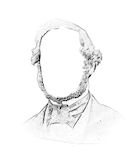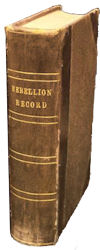
16th.—Rumours are abundant to-day of a Federal force approaching Strasburg. We are not at all credulous of the flying reports with which our ears are daily pained, and yet they make us restless and uneasy. We thank God and take courage from the little successes we have already had at Pigs Point, Acquia Creek, Fairfax Court-House, and Philippi. These are mere trifles, they say; well, so they are, but they are encouraging to our men, and show that we can hold our own.
A most decided revolution is going on in our social system throughout our old State: economy rules the day. In this neighbourhood, which has been not a little remarkable for indulging in the elegancies of life, they are giving up desserts, rich cake, etc. The wants of the soldiers are supplied with a lavish hand, but personal indulgences are considered unpatriotic. How I do admire their self-denying spirit! I do not believe there is a woman among us who would not give up every thing but the bare necessaries of life for the good of our cause.
16th, Night.—I can scarcely control myself to sit quietly down and write of the good news brought by the mail of to-day; I mean the victory—on our side almost bloodless victory—at Bethel. It took place on the 10th. Strange that such brilliant news was so long delayed! The enemy lost 200 men, and we but one. He, poor fellow, belonged to a North Carolina regiment, and his bereaved mother received his body. She lives in Richmond. It seems to me that Colonel Magruder must have displayed consummate skill in the arrangement of his little squad of men. His ” blind battery ” succeeded admirably. The enemy had approached in two parties from Fortress Monroe, and, by mistake, fired into each other, causing great slaughter. They then united and rushed into the jaws of death, or, in other words, into the range of the guns of the blind battery. I feel sorry, very sorry, for the individual sufferers among the Yankees, particularly for those who did not come voluntarily; but they have no business here, and the more unsuccessful they are the sooner their government will recall them. I do believe that the hand of God was in this fight, we were so strangely successful. How we all gathered around M. M. as she read the account given in the paper; and how we exulted and talked, and how Mr. P. walked backwards and forwards, rubbing his hands with delight!
The camp at Harper’s Ferry is broken up. General Johnston knows why; I am sure that I do not. He is sending out parties of troops to drive off the Yankees, who are marauding about the neighbouring counties, but who are very careful to keep clear of the “Ferry.” The Second Regiment, containing some of our dear boys, has been lately very actively engaged in pursuit of these marauders, and we are kept constantly anxious about them.









